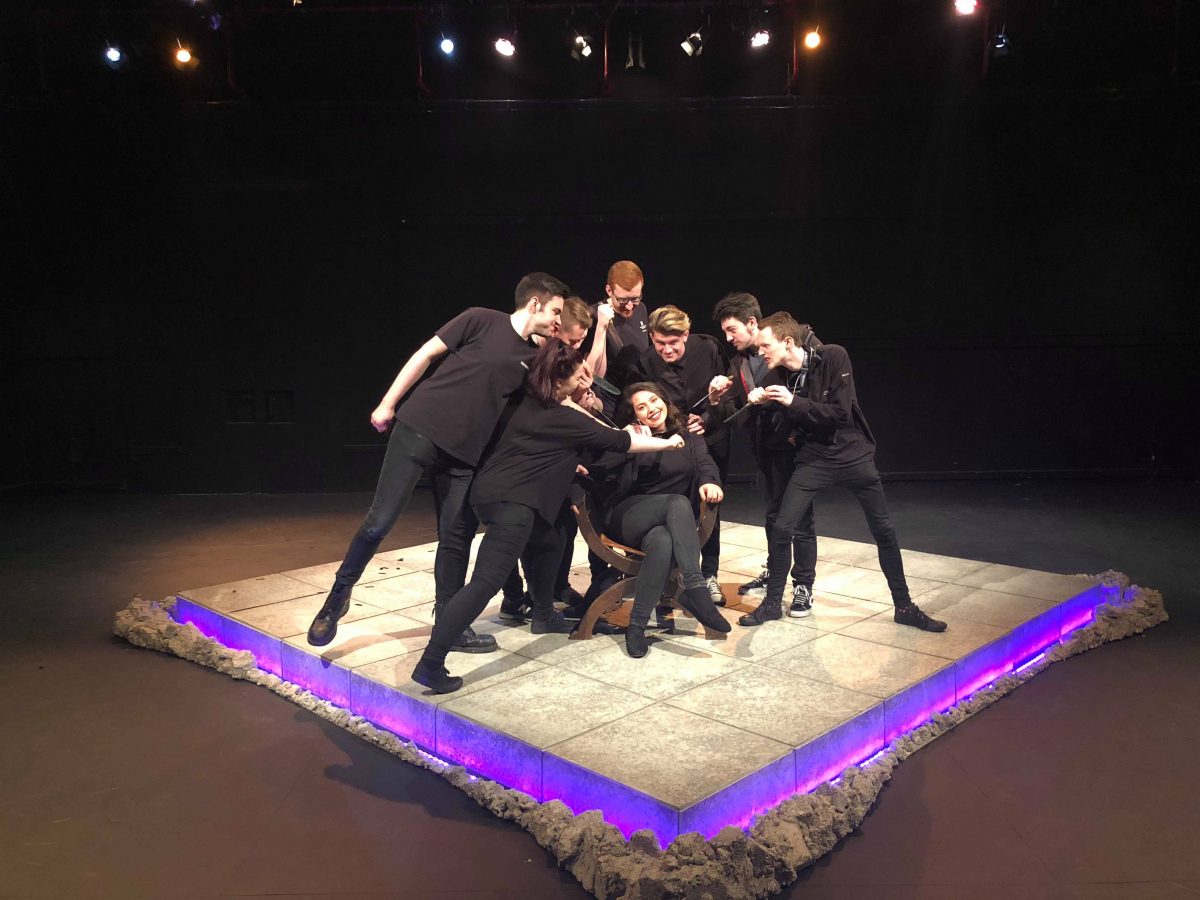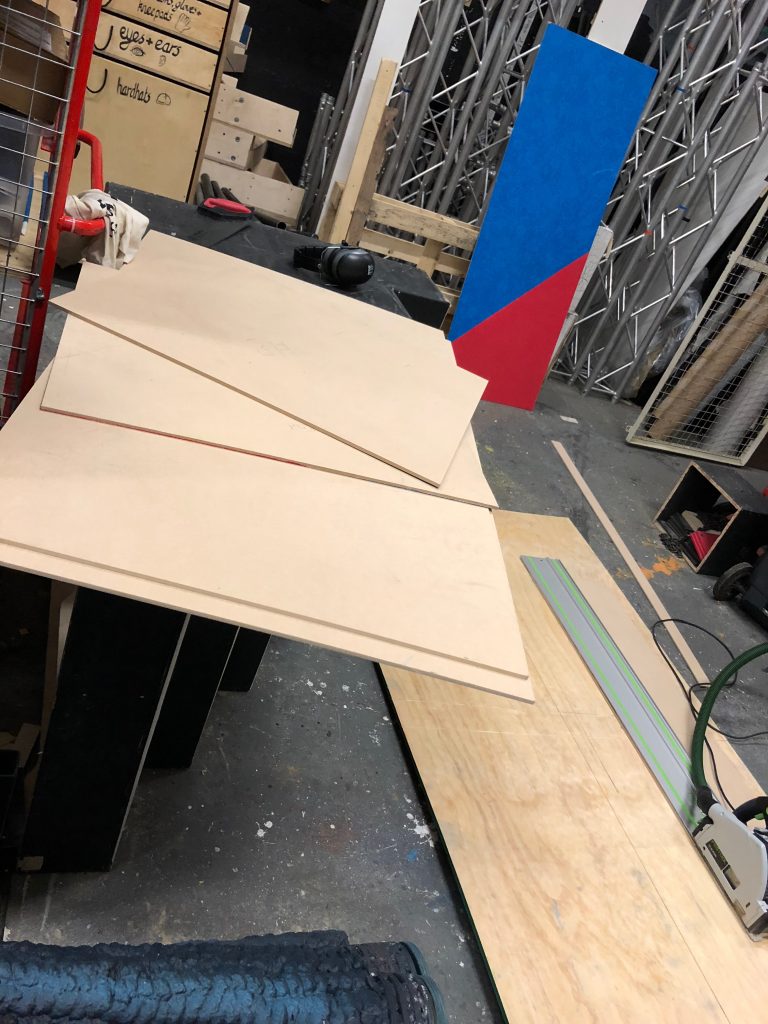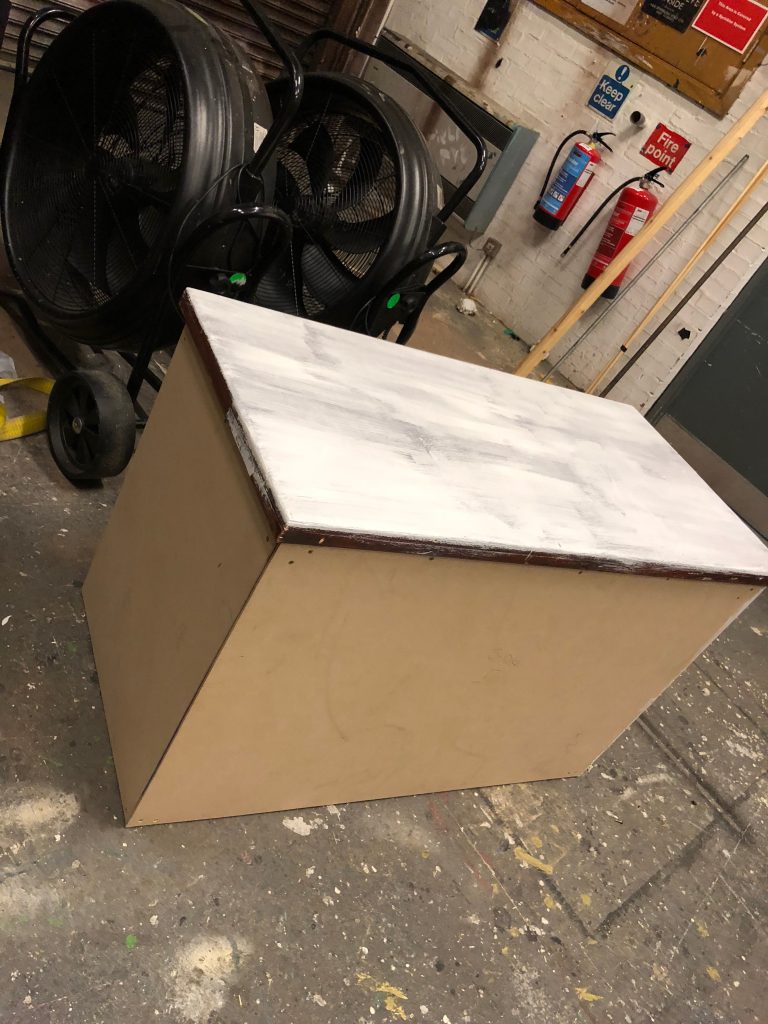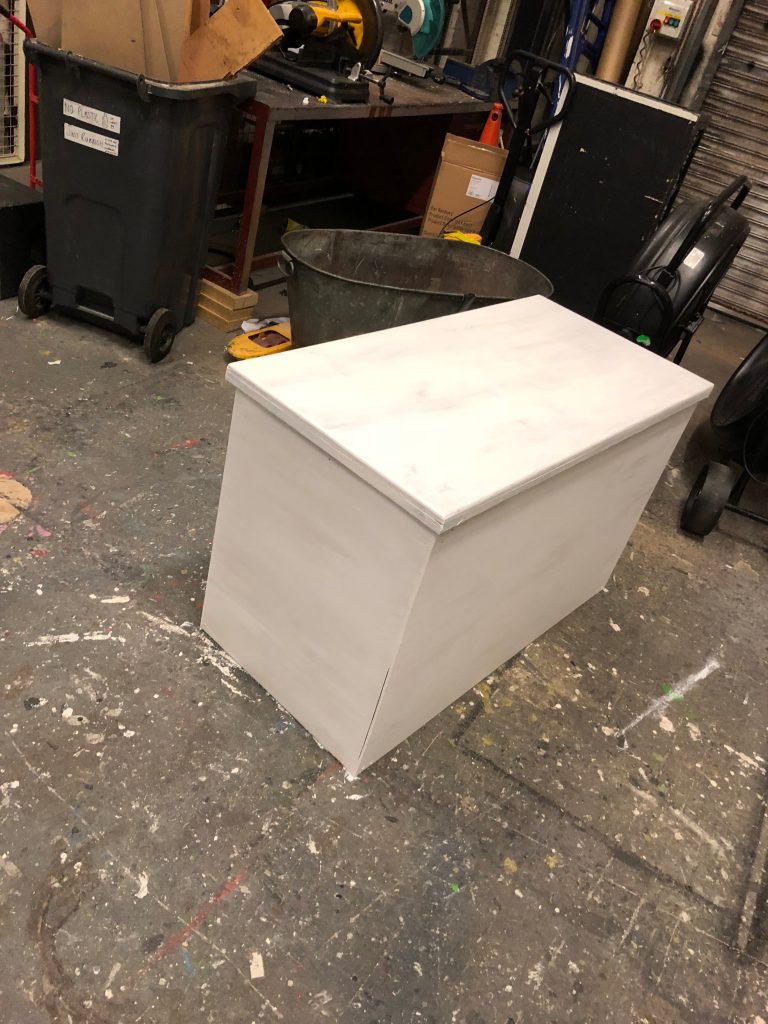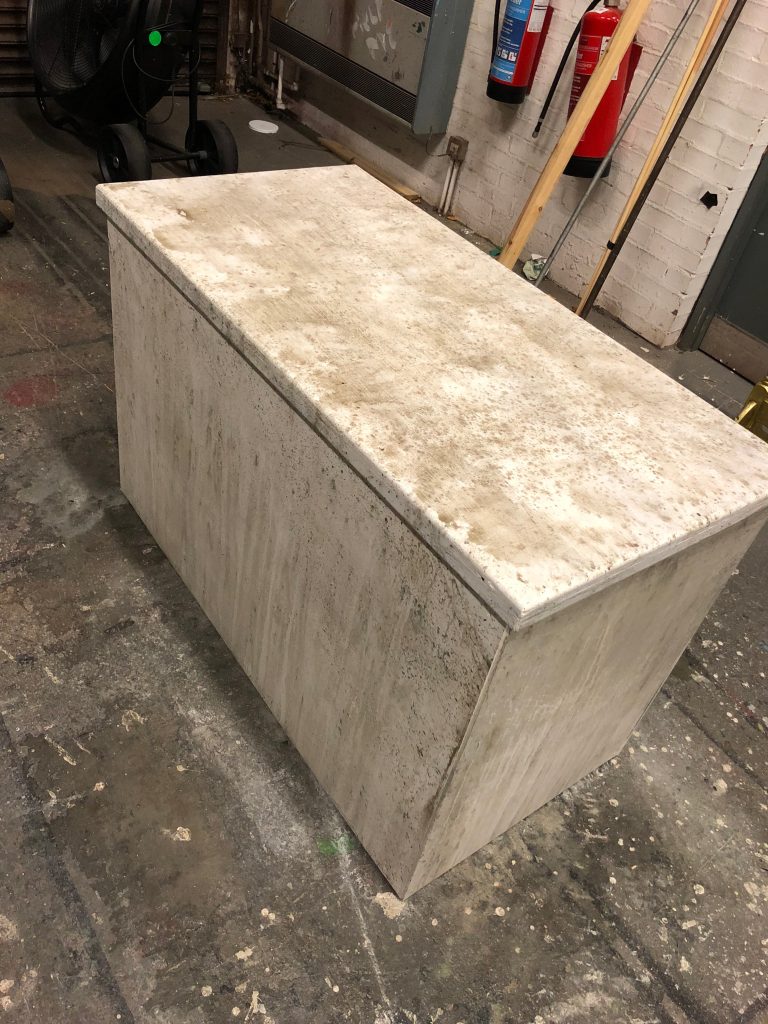Week two of this allocation was spent on the other play – Julius Caesar. As this show was so close to going into the venue, with the LX and part of the TSM rig fitted up the week prior, there was a lot less work to do in preparation, most of it last minute jobs which could only be done once the necessary props and set pieces were brought out of the rehearsal room. One of the tasks we did have to complete was turning a table into a concrete plinth for Brutus and Anthony to address the crowds from. Out of the three people on the team, it was decided I had the most carpentry skills – as much as I tried to deny them – so the task was given to me. I set about cladding the legs with MDF panels, pinning them in at the bottom to prevent it fanning out like a skirt, and painting the entire piece white, texturing it as our scenic art advisor had shown us to. Later, these techniques were repeated on a small statue podium which – when completed – was almost immediately cut by the Director with very few tears shed. This is where Rachel’s management style differentiated itself from Riona’s. Where her’s had been a case of supervision at all times, Rachel split her assets, using every team member’s skills to her advantage to complete many different tasks to a high standard at the same time, rather than slowly completing them one by one. This was a style I enjoyed working with, one where I felt like a valued team member, and one I would seek to emulate later on.
With these items completed and other props like our daggers painted up as the Designer wished them, the show headed into tech. Having only seen the play once in the rehearsal room, I imagined that this would be a train-wreck of an experience. But – it was fine. Everyone in the room seemed conscious to the position that everyone else was in and, as this was the actors’ first public RCS show, Emily – our director – was keen to run sequences over and over again for their benefit, which let us practice our cues over and over again and learn the show ever quicker. Despite two sessions having to be cancelled due to snow disruption, we finished tech on time and even got a dress run in on the Saturday afternoon – leaving us fully prepared for our open dress the following week.
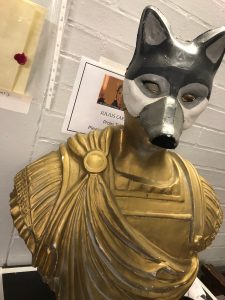
It was that weekend, however, that I was forced to question how well I thought we were doing. On the Sunday morning, I woke up to messages from the other ASM, calling into question my attitude and professionalism during the tech period and saying – quite curtly- that if this didn’t change immediately I would be damaging the show through my ‘misbehaviour’. I was obviously shocked by this, but my first response – alongside checking with my SM whether she had noticed I had been doing anything wrong – was not to argue about the matter but to go and read my feedback from Chess and the diary entries I wrote around that time. Following that allocation, I was forced to reflect on how I worked as an ASM, and I felt that the new style I had adopted for this allocation was in direct response to the feedback I had received on the prior. I went through that feedback, noting that I had avoided many of the pitfalls that had held me back previously, and had to resort to finally questioning exactly what I had done wrong as I couldn’t understand – and therefore couldn’t alter my approach. Though they later apologised and noted their harsh words were inappropriate, this interaction highlighted a valid point – not all styles of work match well with all people. I had changed my working practice so much that it may have swung to the other extreme – so far into uncaring ‘professionalism’ that it appeared cold and abrasive. In future, I will reflect on how I am being perceived and be open to changing my attitude often and quickly in order to work better with those around me. As a side note, I also feel that this kind of interaction was the appropriate way of dealing with this conflict, rather than bitching to others about the issue and never confronting it head-on, as exhibited previously.
Though the shows and hours around them were long, the running of Caesar was smooth and efficient. Our reset cut down to 15 minutes and our cues learned well, each show blended into the next, assisted somewhat by the schedule’s inhumane hours and the severe lack of sleep they promoted amongst the crew. All went well; apart from one show. Our TSM had made clear prior to opening night that he would be unavailable on one date to operate the show and had spent the previous day training a cover TSM to carry out his cues. However, when the time came for the matinee, they were nowhere to be found. I took it upon myself – knowing what had to be prepped as I had written the pre-show running list for the TSM department – to perform the reset, training the PLX and DPLX in how to operate the cues and trusting the TSM’s running list to fill in any holes my education may have left. This didn’t result in an amazing outcome, as the fact the running list was incorrect led to the wrong kabuki triggering at the wrong time and an actor having to quickly cover on stage; though no devastatingly bad outcomes other than that. Through an exchange of words following the publication of the show report that evening it was discovered that an agreement had been made earlier that day that the cover TSM would not do the show as she had ‘too much on her plate’. This was poorly communicated, and no alternative arrangements put in place, resulting in the scenario we found ourselves in and once again highlighted to me the importance of good communication – both verbally to the SM of the show and the Production Manager who didn’t know about the change and, if she did, didn’t tell anyone in the venue when the question came up, and written communication through high quality and accurate running lists which serve the purpose they are designed for; which this one did not. This was a maddening experience though, as with all like it, a valuable one to learn from.
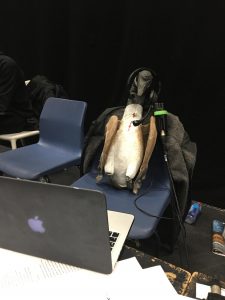
Gretchen the Goose – QLab Operator
As the final show rolled around, and with the strike plan finalised – the deliberation meeting of which will be touched upon later – we set about attacking the venue, our let extended for an extra 45 minutes until 11 o’clock in order to make this viable. In those 45 minutes – though it was closer to 35 including the time to pick up our bags and actually leave – we achieved more than I thought would have been possible. Our team de-rigged Caesar’s confetti drop, de-rigged three catwalk to catwalk scaff poles, took up the LED tape, sacrificial floor and rubble from the deck, dismantled the dias – storing two pieces in R2 and assembling the rest into the band riser for Twelfth Night – moved the seating banks to their new position, hoovered the catwalks, fully struck the Julius Caesar LX rig, hung most of the Twelfth Night rig, and moved all the props to our props cages and struck these to the dock. It was an amazing feeling working with a really focused team, and was the adrenaline rush I needed to wake myself up after the fourteen hour day that preceded it; Working Time Directive be damned.

